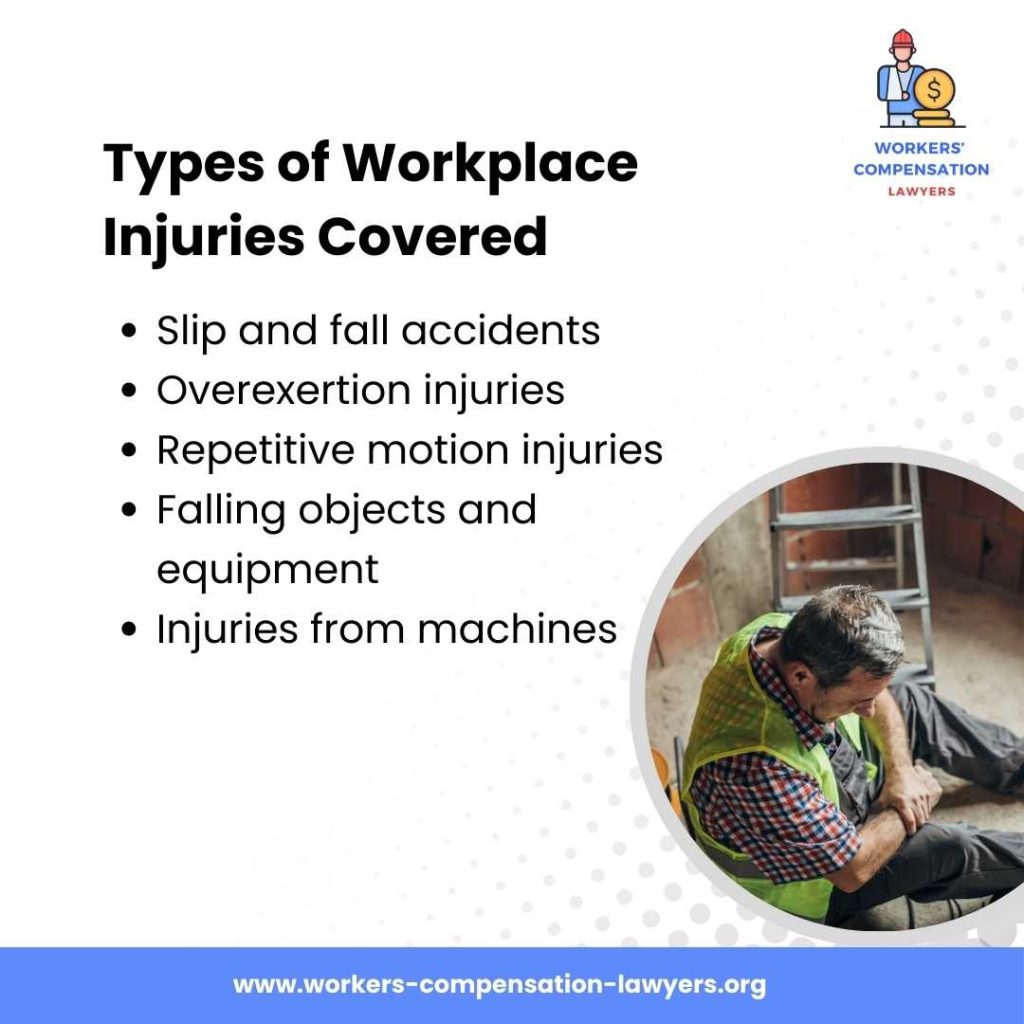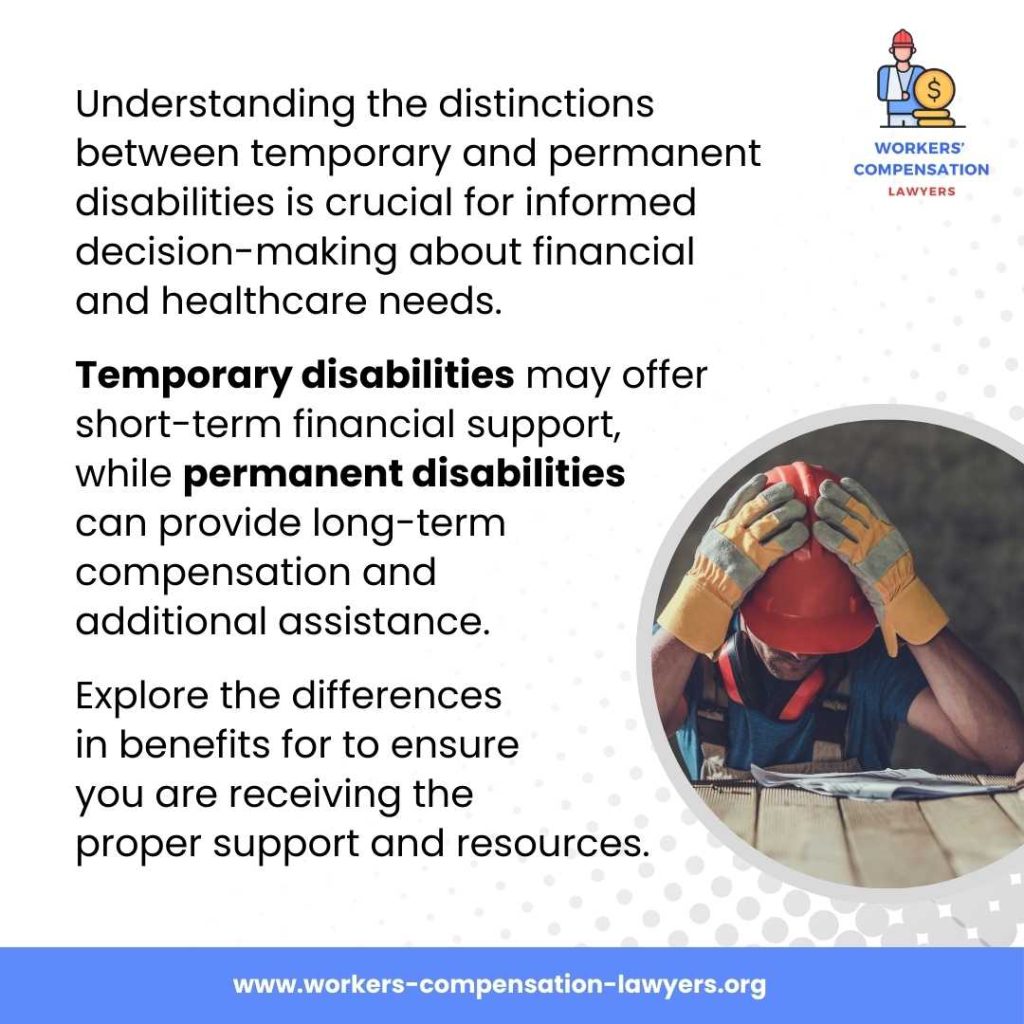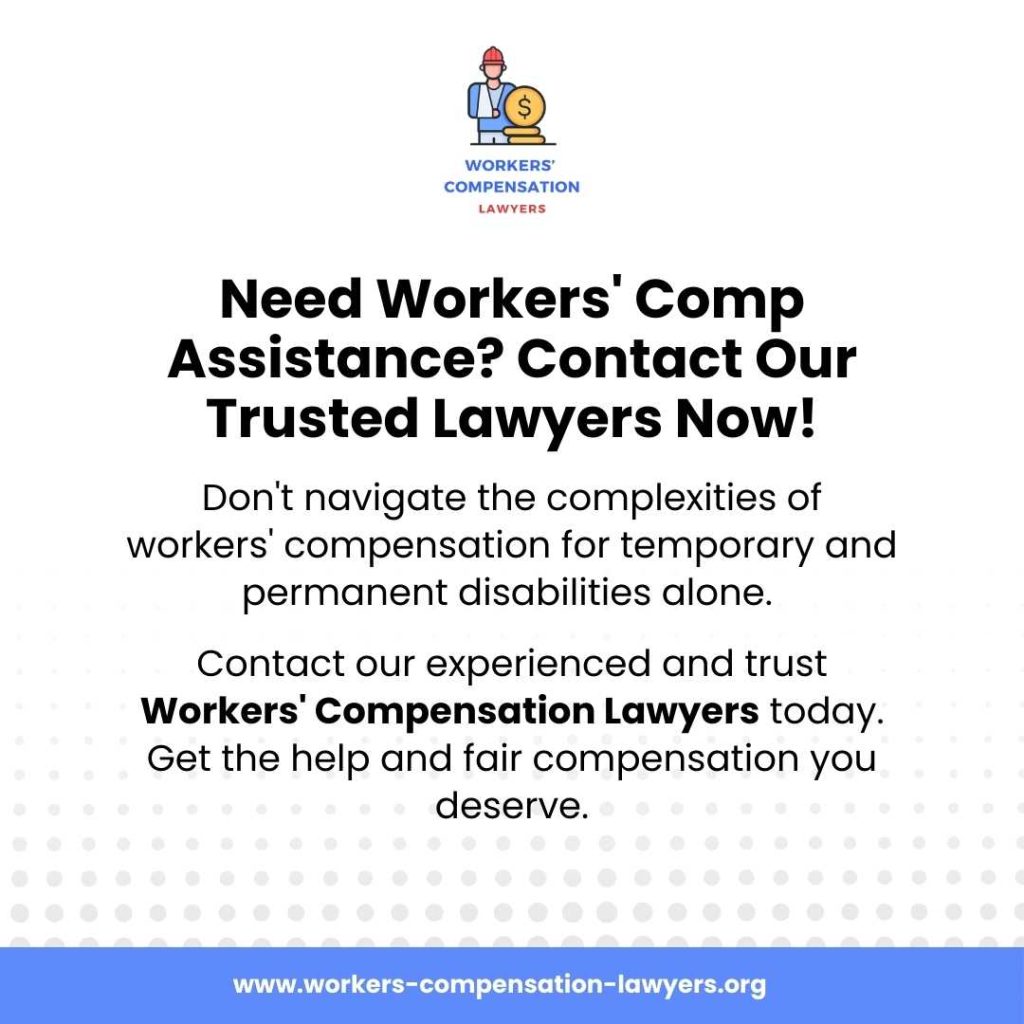
When it comes to workplace injuries, employees must understand their rights and options for compensation. Injuries can have varying degrees of severity and result in temporary or permanent disabilities that can impact an employee's ability to work.
This blog post will discuss the differences between temporary and permanent disabilities regarding workers' compensation, the average workers' compensation settlement, and the importance of seeking legal representation from a worker's compensation lawyer.
Workers' compensation is insurance that benefits employees for injuries or illnesses sustained on the job. These benefits can include medical treatment, lost wages, and vocational rehabilitation. Workers' compensation laws were established to protect employees from the financial burden of workplace injuries and to ensure they receive proper medical care and resources to aid their recovery.

When we go to work, we might not even think about the risks and dangers of our jobs. But accidents can happen at any time, leading to injuries. Learn more about the different types of workplace injuries that are covered by worker's compensation.
It's important to remember that every workplace injury is different, and it's always best to let your supervisor know immediately if you get hurt at work. They can help you file a worker's compensation claim and ensure you get the proper treatment for your injury. Stay safe at work and always follow safety guidelines to prevent workplace injuries.
Temporary disabilities are injuries or illnesses that have a short-term effect and are expected to improve within a specific time frame. Some examples of temporary disabilities include broken bones, sprains, strains, and illnesses such as the flu. These injuries can happen in any workplace and cause employees to miss work for days, weeks, or months.
In most cases, employees with temporary disabilities are entitled to receive workers' compensation benefits to cover their medical expenses and any lost wages. These benefits are based on the severity of the injury and the length of time the employee cannot work. In some cases, an employee may be able to return to work with restrictions or limitations while still receiving benefits. However, it's essential to note that these benefits are only temporary and will end once the employee fully recovers and can return to work without restrictions.
Permanent disabilities, on the other hand, are injuries or illnesses that have a long-term or lifelong impact on an employee's ability to work. This type of disability can result from severe injuries to the back, spine, head, or joints or from chronic conditions such as carpal tunnel syndrome or occupational asthma. Permanent disabilities can significantly affect a person's life and career, making it challenging to maintain a consistent income and quality of life.
Employees with permanent disabilities are also entitled to workers' compensation benefits. However, these benefits are considerably different from those for temporary disabilities. In addition to medical treatment and lost wages, employees with permanent disabilities may also receive vocational rehabilitation benefits, such as job training and career counseling. These services can help employees find new work opportunities that accommodate their disability and allow them to continue providing for themselves and their families.

Let's explore the differences between temporary and permanent disabilities and what that means for the benefits you can receive.
To receive benefits for a temporary disability, you must show that you cannot work for a short period, such as a few weeks or months. This can be due to an injury, surgery, or medical treatment. For a permanent disability, you must prove that your condition will prevent you from working for a more extended period, usually for the rest of your life.
Temporary disability benefits are usually paid through short-term disability insurance provided by employers or state programs. The amount you receive is based on a percentage of your regular pay. For permanent disabilities, benefits can come from long-term disability insurance, Social Security Disability Insurance (SSDI), or Supplemental Security Income (SSI). These benefits are often based on your work history and the severity of your disability. For further information, see our recent blog on "How Much Does Workers Comp Pay?."
The duration of benefits for a temporary disability depends on the severity and type of injury or illness. It may last a few weeks to a few months to help the person recover and return to work. On the other hand, benefits for a permanent disability are meant to provide long-term support since the person cannot work for the foreseeable future.
Temporary disability benefits may cover medical expenses related to your injury or illness, such as doctor visits and necessary treatments. However, permanent disability benefits typically include coverage for ongoing medical care, rehabilitation services, and prescription medications to manage the disability. Learn more about this by reading our latest blog on “Workers' Compensation and Medical Bills: What's Covered and Not?”
Since temporary disabilities are expected to improve over time, beneficiaries may be required to actively seek ways to return to work, such as attending physical therapy. On the other hand, permanent disability beneficiaries may not be expected to resume work due to the severity and impact of their condition.
When dealing with workers compensation claims and lawsuits, it's crucial to have legal representation from an experienced worker's compensation lawyer. These legal professionals specialize in handling workplace injury cases and can provide the necessary guidance and support to ensure employees receive the compensation they deserve. Trust Workers’ Compensation Lawyers will assist with your compensation claims if needed.
For employees with temporary disabilities, a worker's compensation lawyer can help navigate the legal process and ensure that their benefits are correctly calculated and paid out on time. They can also assist in negotiating any potential conflicts with the employer or insurance company, ensuring that the employee's rights are protected.
A worker's compensation lawyer is crucial for employees with permanent disabilities. These cases can be complex and may require a more significant amount of compensation to account for the long-term impact on the employee's life and career. A lawyer can work to secure fair and just compensation for the employee and also provide support in obtaining necessary vocational rehabilitation services.
In addition to providing legal support, a workers compensation lawyer can also provide valuable resources and referrals to other professionals such as doctors, therapists, and vocational experts. They can also assist with filing paperwork, gathering evidence, and meeting critical deadlines.
Don't let a workplace injury leave you financially and physically disabled. Take action now with the help of experienced Workers' Compensation Lawyers. Whether you face temporary or permanent disabilities, our team will fight for your rights and fair compensation.
Don't delay. Contact us today, and let us help you get the support you deserve to get back on your feet. Your health and financial security are our top priority. If you need help navigating the complex legal system, trust our skilled lawyers to guide you toward a successful claim. Let us be your voice and your support system during this difficult time. Take the first step towards a brighter future - contact us now!

***
The material on this site is for informational purposes only and DOES NOT CONSTITUTE THE PROVIDING OF MEDICAL ADVICE, and is not intended to be a substitute for independent professional medical judgment, advice, diagnosis, or treatment. Always seek the advice of your physician or other qualified healthcare provider with any questions or concerns you may have regarding your health.

Disclaimer: Workers-Compensation-Lawyers.org is not an attorney referral service or a law firm. Workers-Compensation-Lawyers.org does not provide legal advice of any sort. We are a free matching service, and all claim reviews will be performed by a third party attorney. We do not recommend, nor do we endorse any attorneys that pay to participate in our service. No attorney-client relationship is formed when you submit the form and you are under no obligation to retain an attorney who may contact you through this service.
How it works
FAQs
About us
Contact us